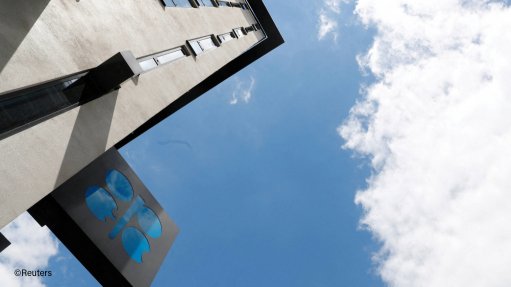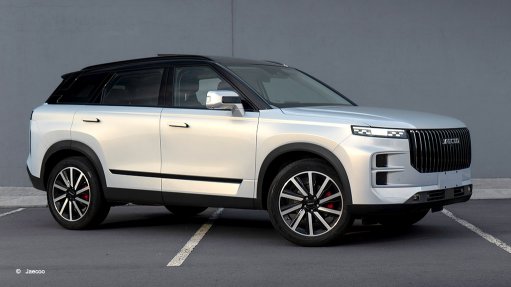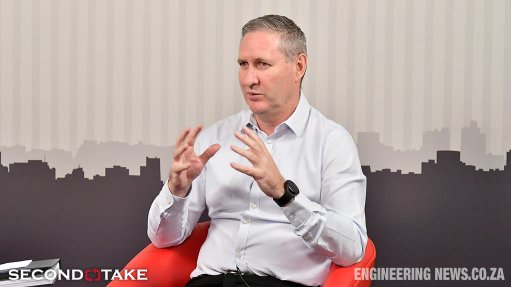BRICS and BRICs – 2014 a key year
This year is going to be an important year for the loose alignment of countries known as BRICS. Three of them are going to have national elections. That is 60% of the group. If you want to be really strict, you could say that 100% of the indisputably democratic members of BRICS will go to the polls this year.
At this point we should, perhaps, clarify definitions. BRICS is a very loose political grouping of Brazil, Russia, India, China and South Africa. The creation of this group was inspired by a British economist then at Goldman Sachs, Jim O’Neill, who, in 2001, coined the term BRIC (Brazil, Russia, India, China; plural BRICs) to highlight the rapid growth and size of these countries’ economies, and their achievement of global economic significance. It is important to note that, while South Africa is part of BRICS, its economy is too small to be included in BRICs.
Writing in 2011 to mark the tenth anniversary of his BRICs concept, he noted that these four economies combined had, by then, grown to some $13-trillion. Since then, however, things have slowed up. In December, talking to the Wall Street Journal (WSJ), O’Neill forecast that the four BRICs would grow at an average rate of 6.6% from 2011 to 2020, but that most of that would be due to China, which he identified as the only BRIC country that exceeded his expectations. He quipped that if he was now to modify the BRICs concept, it would be to change it to the C concept: China.
China, of course, went through its now regular decadal leadership change last year, when Xi Jinping was elevated to the country’s Presidency and, more importantly, Chairman of the Central Military Commission of the Communist Party of China (CPC). He assumed the most important position of all, General Secretary of the CPC, in 2012. Although the giant Asian economy has decelerated, it still enjoys strong growth. In its latest eco- nomic forecast for China, issued in November last year, the Organisation for Economic Cooperation and Development (OECD) noted some concerns (“[m]oney and credit growth need to be reined in”, for example) but reported economic recovery (albeit “subdued” by recent Chinese standards). Even so, the Chinese economy is expected to grow at 8.2% this year, up from 7.7% last year, although falling back somewhat to about 7.5% in 2015.
O’Neill told the WSJ that he remained highly optimistic about Beijing’s policy of moving to higher quality growth in place of just quantitative growth. This has been one of the causes in the slowdown of the Chinese economy. Nevertheless, he pointed out that Chinese growth of around 7.5% was equivalent to US growth of about 4% a year, and that fact was still not widely recognised.
Regarding the 2014 BRICS electoral trio, India will start its elections on April 16 and conclude them on May 13 (this long period being due to the geographic and demographic size of the country and the need to provide proper security for the process), South Africa will go to the polls on May 7, while Brazilians will vote on October 5 (and, should a second round be required, on October 26). Regarding South Africa, I will leave the socieconomic and political analysis to the many commentators and analysts who are much better informed than I am (go to our sister unit within Creamer Media, www.polity.org.za).
India has suffered a significant economic slowdown over the last couple of years. During the last decade, the country’s growth rates challenged those of China, at 9% plus during the three financial years 2005/6 to 2007/8, and 8.9% in 2010/11. In sharp contrast, India’s growth in the 2012/13 financial year was 4.5% (the lowest for a decade), while that for the current financial year is expected to be 4.9% – an improvement, yes, but still far below the performances achieved during the previous decade. Earlier this month, the OECD predicted that the country would grow “below trend” (whereas Brazil, China and Russia would grow “around trend”).
Indian politics are in turmoil. Massive corruption has caused great public anger, and resulted in the meteoric rise of a new party, the Aam Admi (Common Man) Party (AAP), which came from no-where to win the Delhi State elections in December. Yet the AAP leader resigned as Chief Minister of Delhi after only 49 days in office! Officially, this was because the state legislature would not pass his anti-corruption bill. Currently, no one knows if this means the end of the AAP as a serious force in Indian politics, or, rather, clears the way for its leader to run for national office and pose a serious threat to the well-established Congress Party and the current opposition Bharatiya Janata Party (BJP).
Congress, responsible for the reforms that led to the economic boom of the previous decade, seems to have lost its enthusiasm for reform and stimulating the private sector. The AAP seems to want to reverse the reforms brought about by Congress, and go back to the heavily socialist, hostile-to-free market and suspicious-of-business policies that led to such mediocre socioeconomic growth and development during the first half-century of Indian independence. Only the BJP is currently seen as being in any way friendly to business. India is in grave danger of losing its way. It is certainly falling behind China. A recent poll for the weekly The Economist showed that 57% of young Indians would emigrate to the US if they could.
Brazil’s elections are a lot further away. O’Neill expects the country to grow at between 2.5% and 4.5% or even 5% this year – even the lowest figure would be a big jump over the 1.5% achieved in 2012. But there is a lot of dissatisfaction, emblematically marked by the unprecedented hostility to the country’s hosting this year of the FIFA World Cup, and the huge amounts spent on it. There is little, if any, support in Brazil for the BRICS grouping, including among the elites (no one can see the point of it) and many of the foreign policy initiatives of the past 12 years are seen as programmes of the ruling Workers’ Party, which are widely seen as being of no practical benefit to the country. A change in government in October will certainly see a change in foreign policy and probably a return to reform, to reduce the costs of doing business in Brazil.
Comments
Press Office
Announcements
What's On
Subscribe to improve your user experience...
Option 1 (equivalent of R125 a month):
Receive a weekly copy of Creamer Media's Engineering News & Mining Weekly magazine
(print copy for those in South Africa and e-magazine for those outside of South Africa)
Receive daily email newsletters
Access to full search results
Access archive of magazine back copies
Access to Projects in Progress
Access to ONE Research Report of your choice in PDF format
Option 2 (equivalent of R375 a month):
All benefits from Option 1
PLUS
Access to Creamer Media's Research Channel Africa for ALL Research Reports, in PDF format, on various industrial and mining sectors
including Electricity; Water; Energy Transition; Hydrogen; Roads, Rail and Ports; Coal; Gold; Platinum; Battery Metals; etc.
Already a subscriber?
Forgotten your password?
Receive weekly copy of Creamer Media's Engineering News & Mining Weekly magazine (print copy for those in South Africa and e-magazine for those outside of South Africa)
➕
Recieve daily email newsletters
➕
Access to full search results
➕
Access archive of magazine back copies
➕
Access to Projects in Progress
➕
Access to ONE Research Report of your choice in PDF format
RESEARCH CHANNEL AFRICA
R4500 (equivalent of R375 a month)
SUBSCRIBEAll benefits from Option 1
➕
Access to Creamer Media's Research Channel Africa for ALL Research Reports on various industrial and mining sectors, in PDF format, including on:
Electricity
➕
Water
➕
Energy Transition
➕
Hydrogen
➕
Roads, Rail and Ports
➕
Coal
➕
Gold
➕
Platinum
➕
Battery Metals
➕
etc.
Receive all benefits from Option 1 or Option 2 delivered to numerous people at your company
➕
Multiple User names and Passwords for simultaneous log-ins
➕
Intranet integration access to all in your organisation


















